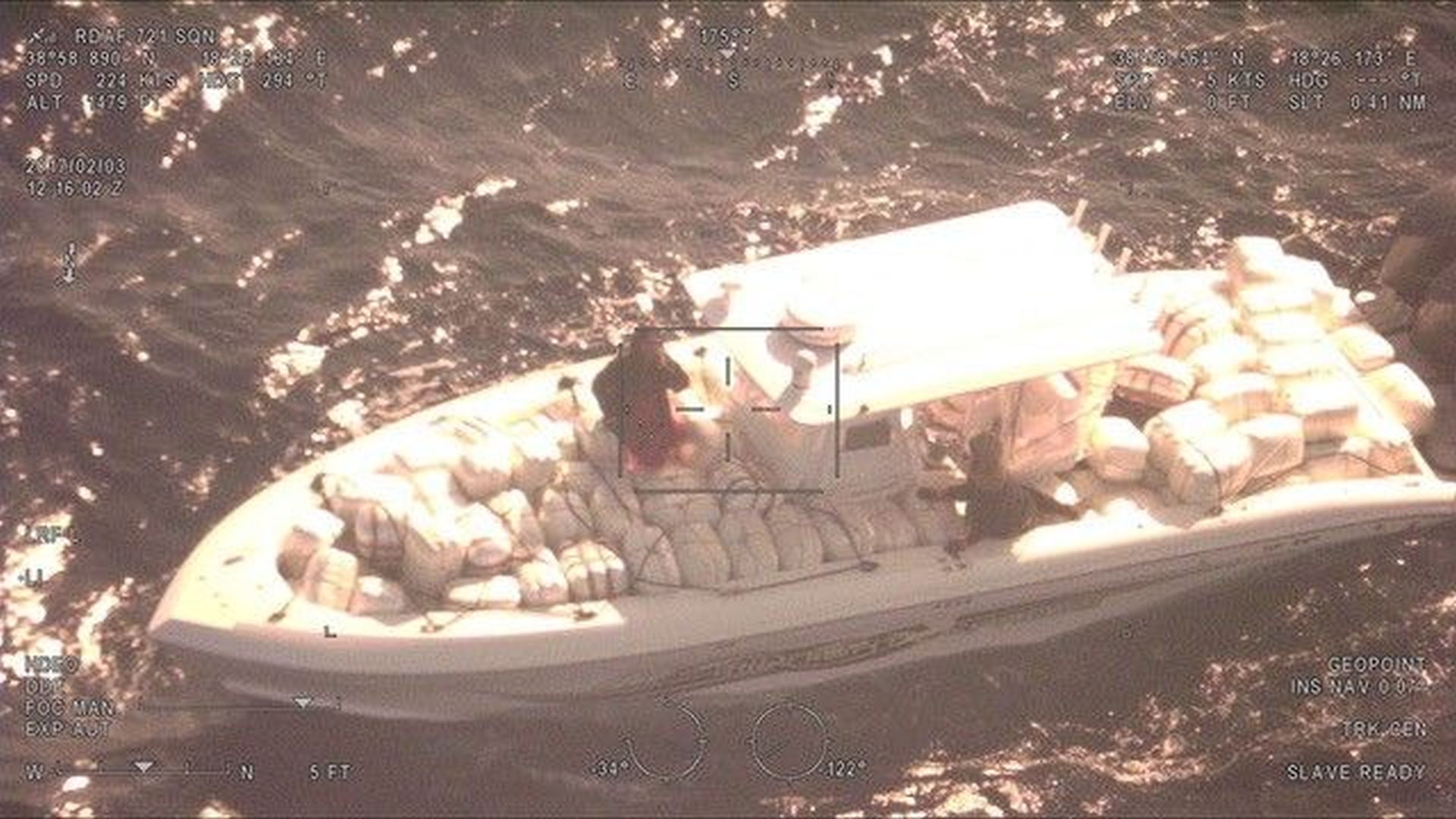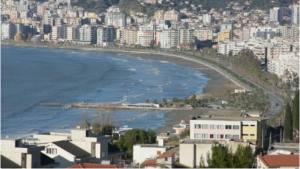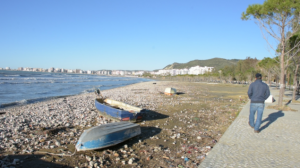More than two years have passed since Ferzilete Senkaj last saw her son, Leonard, who disappeared in December 2015.
She still hopes he is alive. “He smuggled drugs. No one asked him to do it. He did it without our consent and one day he didn’t come back,” she said.
Ferzilete does not know who her son worked for, but after she last saw him on December 27, 2015, she learned he had taken a boat to Italy with a 20-year-old friend, Taulant Çerenishti, who was no stranger to that route.
Leonard had already served a prison term of four-and-a-half years in Italy for drug trafficking and was released four years ago.
“His friends told us he had gone fishing, that he had gone to Italy,” Ferzilete said.
Leonard is one of a number of Albanians from the coastal town of Vlora who have vanished at sea in recent years.
Police sources told BIRN that some 13 people have been reported missing between 2016-2017 in Vlora, which lies at the narrowest point of the Otranto channel that links Albania to southern Italy.
The shortest distance between Vlora and Otranto is about 80 km. Using high-powered speedboats that reach 60 km per hour, smugglers can complete the ride in only a few hours.
And with big profits on offer, it is easy to see why so many smugglers in this impoverished corner of the Balkans are tempted into this trade.
Huge profits are a temptation to many:
The cannabis is grown outdoors in Albania. Police intercepts show that Albanian gangs can purchase the cannabis for 100 to 300 euros per kilogramme, and that the price fell following a massive rise in cultivation in 2016.
The profit margin is massive; a kilo of the drug can be sold for 1,500 to 2,000 euros to Italian drug gangs in Puglia, Italian police say.
Police sources in Vlora told BIRN that of the 13 people who went missing from Vlora in the last two years, nine of them, including Leonard Senkaj and Taulant Çerenishti, are believed to be victims of the marked rise in drug trafficking that has affected the area in the last two years.
However, police in Vlora – who are themselves accused of involvement in the distribution of cannabis from the region – seem reluctant to launch any investigations that might implicate them.
Police allegedly involved in same business:
Ferzilete Senkaj reported her son’s disappearance to the police after she found his wallet, phones and a bag in a bar as she searched for her son on the streets of the town three days following his disappearance.
Although his mother told BIRN he had been involved in drug trafficking [we do not know whether she reported his criminal history, but it is part of his file], police documented the death as a case of “fisherman lost at sea”.
Twelve days after the case was sent to a prosecutor, who was supposed to decide on whether to launch a more extensive investigation, the case was closed. Prosecutors concluded there was no evidence of any crime.
The backdrop to these apparently confusing decisions is alleged corruption at the heart of the Vlora police force.
Former police director Jaeld Çela has been on the run since November 2017. The head of the local crime investigation department, Gjergj Kohilla, and a border police chief, Sokol Bode, disappeared at the same time.
All three are suspected of helping traffickers to export cannabis across the Adriatic Sea between 2013 and 2017.
Accusations of involvement in or complicity with drugs trafficking extend to the highest levels of public office in Albania.
The Prosecution Office for Serious Crimes sought arresting Saimir Tahiri last November, who was Albanian Interior Minister from September 2013 to March 2017, over his alleged involvement in the trade. However, Socialist lead parliament denied the request. Tahiri is currently under investigation for drug smuggling.
The family of Taulant Çerenishti, who went missing together with Ferzilete Senkaj’s son, have since abandoned their decaying one-storey home after Taulant disappeared and, according to the neighbours, left for the US.
“Since that tragedy happened to their son, they all went to America. He was a good boy, but the sea took him, took his friend,” a neighbour said.
Authorities say ‘no crime has occurred’:
Italian police records show that in the last two years cannabis smuggling has grown as fast as the pungent, lucrative cannabis buds on a sun-soaked Albanian hillside.
In the Puglia region alone, Italian police have seized more than 50 tons of cannabis in2017 and arrested 35 people on the spot during the same period found to be carrying drugs in speedboats.
In a written response to BIRN, Vlora police also stated that during 2017 three bodies of people who drowned had been found in the Vlora area.
However, they also stated that all three were people who “have not been reported as missing and are not suspected of losing their lives in drug trafficking.”
One of those bodies belonged to Ardian Hitaj, who left his home on March 11, 2017. His wife told BIRN that that same evening, while she was still unaware that her husband was missing, police came to her home, asking about her husband.
“That night, police came to our house and asked questions about Ardi – where and with whom he had gone out fishing. They came again a few days later to ask the same questions and also [asked to see] the phone numbers that Ardi had,” Valbona Hitaj told BIRN.
Hitaj’s body was found washed away on the north side of nearby Sazan Island two months later.
It is unclear why police questioned Valbona Hitaj even before suspicions had arisen that he might be missing.
Documents obtained by BIRN show that the case was not opened at the time, nor soon after questioning, but only after his body was found, two months later.
Based on forensic expertise that asserted no signs of violence on the body, the case was reported as drowning.
About two weeks later, on June 26, 2017, Vlora Prosecution Office closed the case, concluding that no crime had occurred.
Relatives have little faith in justice:
Only one case – the disappearance of two men in July 2017 – is officially being investigated as a case involving drug smuggling.
Ariseld Maze, 32, went missing in July last year, along with a local businessman known as Adriano Jahaj.
“The police investigators have reason to think that citizens Adriano Jahaj and Ariseld Maze on the day of the event had gone with their boat towards Italy, aiming to smuggle a quantity of cannabis,” reads the file that Vlora police sent to the Serious Crime Prosecution in Tirana, which is responsible for investigating organised crime.
“We are unable to know if they reached the Italian coast or not,” it added.
According to a file, Jahaj was also previously involved in drug smuggling. The case in Tirana is ongoing.
Although Jahaj’s family claim he went by sea to buy another boat in the central coastal town of Durres, Maze’s family all thought their son had gone fishing.
Seven months on, his father, Përparim Maze, has lost hope that authorities will discover what really happened.
“Who will find my son? This corrupted police, these corrupted prosecutors? Leave me to grieve,” he says.
Source: balkaninsight
Ask me anything
Explore related questions







